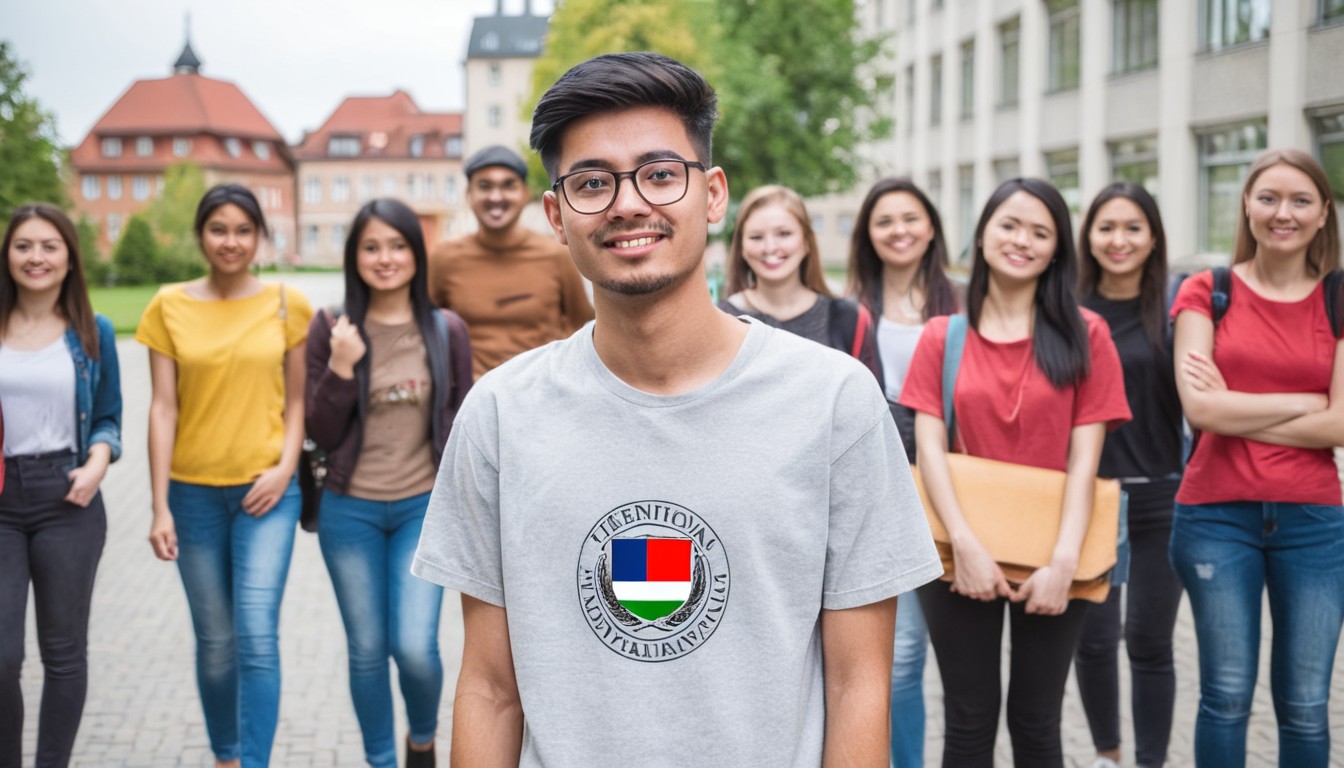Denmark universities have set a benchmark in global education. 7 Danish universities will grace the QS ranking in 2024. The University of Copenhagen (KU) registered in the top 100 QS rankings in 2024. Denmark has many universities with high international standards and quality infrastructure. Over 35,000 international students choose to study in Denmark every year. The Technical University of Denmark (DTU) is one of the world’s best engineering universities, and Copenhagen Business School (CBS) is a renowned business school. The universities in Denmark mainly emphasize innovative teaching methodologies, research-oriented studies, and quality training.
The country has many English-taught universities and research programs. For this reason, most international students are opting to study in Denmark. For students who are planning to study in Denmark, they require a Denmark student visa. Except for Denmark citizens, the EU, EEA, or Switzerland, students from the remaining countries must obtain a Denmark student visa to study at any university. After getting admission to Denmark University, you must apply for a visa 6 months before your courses begin. Apply for a Denmark study visa at the Danish embassy. Based on the province, approving a Denmark student visa takes 2 weeks to 2 months.
| Intakes | Study Program | Admission Deadlines |
| Summer | Undergraduate and Postgraduate | January – Mid-March |
| Winter | Undergraduate and Postgraduate | July to September |
Visa Requirements
The visa requirements for studying in Denmark depend on your country of origin. If you are from any Nordic country, i.e., Norway, Sweden, or Finland, you can study in the country without any documentation. You will only need a personal identification number, which will be given to you when you submit your passport or any other personal identification on arrival.
If you belong to the EU, EEA, or Switzerland, you can stay in Denmark for up to three months with a valid passport. However, you will need a Danish registration certificate if you stay for over three months. With this certificate, you will get a personal identification number, which is essential if you want to work in the country.
If you are not from the EU or EEA, you will require a permit to study in Denmark. The kind of permit will depend on the duration of your stay. If you plan to stay here for less than three months, you will need a visa; for a longer stay of more than three months, you will need a residence permit.
Denmark Study Visa Requirements
- Completed ST1 form
- Letter of acceptance from Danish university
- Proof of financial reports
- Academic transcripts
- Application fee payment receipt
- 60-70% of scores in previous academics
- IELTS with 7.0 score
- TOEFL 587-610 (paper-based), 94-101 (internet-based test), or 240-253 (computer-based test)
- English A – Certificate of Proficiency (CPE)
If you must stay in Denmark for more than three months for your studies, you must apply for a residence permit. You can make the application at the Danish embassy in your home country. Students can work 20 hours per week in Denmark with a residence permit.
The residence permit will be valid for the duration of your program, so you need not bother about renewing it during your program. It is better to begin your application process three months before you travel to Denmark.
A Denmark student visa is issued for 5 years. It can also be extended from India if there is any need for an extension. Indian students can travel to Denmark from any of the desired ports of immigration checkpoints via airport or seaport.
Denmark student visa fees range from DKK 1900 to DKK 2500. The visa fee is prone to change per the government’s terms and conditions. Students applying for visas can check the details on the immigration portal.
Application Process
- Accept a place at a publicly-accredited Danish institution: You might need to pay an enrollment fee to secure your place, but this will depend on the university.
- Use the online portal to create a new case order ID: You’ll need to enter information, including your full name, email address, and passport number.
- Pay the application fee: You won’t be able to progress with your application until your payment has been received.
- Gather documentation: Having the requested documents on hand will make the application process much easier. We’ve outlined exactly what you’ll need in the section below.
- Fill out the application form: Both you and your university will need to complete sections of the ST1 form. This can be done online, or you can download a paper copy.
- Submit your application: If you apply through the online portal, your application will be automatically submitted. If you’ve completed a paper form, you’ll need to take this to the nearest diplomatic mission or application center in your home country.
- Record your biometric data: You must have your biometric features (photograph, fingerprints, and signature) recorded at a Danish diplomatic mission, application center, or police station within 14 days of submitting your application. It’s important to schedule an appointment in advance.
- Await a decision: You’ll usually receive a decision within two months.
Required Documents
-
- A formal letter of admission from your university
- A detailed breakdown of your academic program
- A valid passport and passport-style photos
- Completed ST1 form
- Proof of English or Danish language proficiency (this will depend on what language you’ll be studying in)
- Evidence that you have the financial resources to live in Denmark
- Details of your living arrangements
-
- Receipt of application fee payment
- Proof of travel insurance
Work Hours while studying in Denmark
The hours you can work as an international student in Denmark will depend on the country you’re from and the time of the year.
If you’re from outside of the EU, EEA, or Switzerland, you can work up to 20 hours per week between September and May and 37 hours per week during the months of June, July, and August. These permissions are already granted to you through your residence permit, so you won’t need to apply for a separate work permit.
EU, EEA, and Swiss nationals can work as much as they like throughout the year to supplement their studies.





